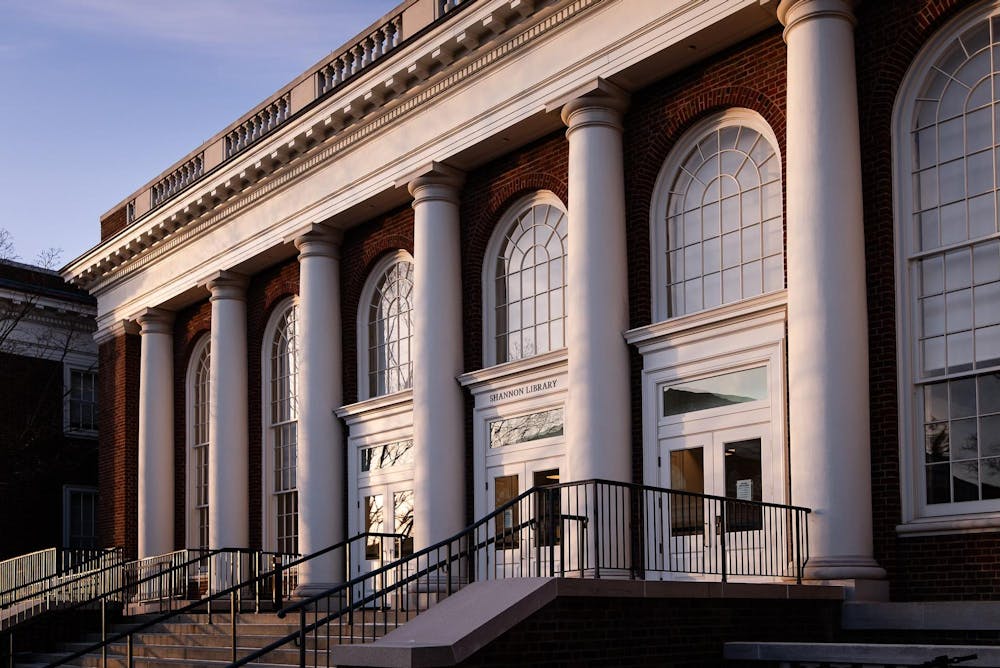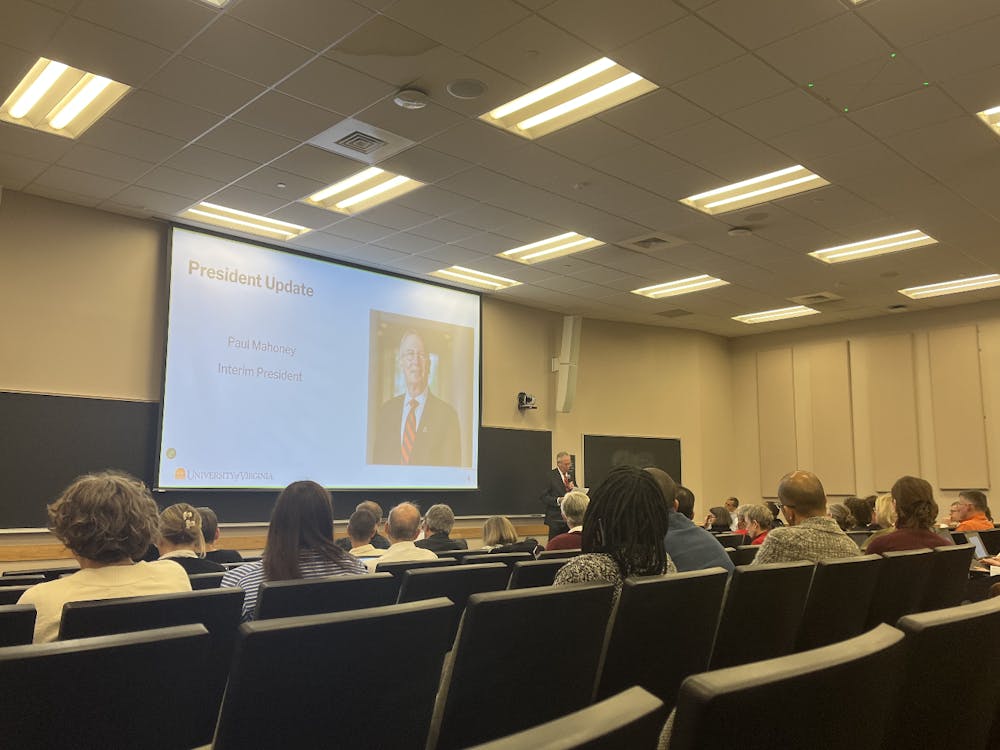It has been over a year since the melting of Charlottesville’s statue of Robert E. Lee which was the impetus for the 2017 Unite the Right rally. Ultimately, the statue was melted down and is being repurposed into more inclusive art. Beyond the role it played in the city’s recent history, the statue’s removal and future re-creation are just the latest action in a trend of communities reckoning with their history, often by renaming buildings or removing statues of problematic figures. This trend is particularly prevalent on college campuses, the University included. More recent in our minds is the renaming of Alderman library to Shannon Library, deplatforming a man who dedicated his career to studying and advocating eugenics. Despite these positive steps, much work remains to be done. Yet, the advocacy and action toward such change seems to have stagnated — and the result is a series of uncomfortable, dissonant half measures.
The University's commitment to renaming goes further than just Shannon library. In fact, the University, in the past, has prioritized ensuring that the names of our buildings reflect our values. In spring of 2022, the University renamed Maury Hall to John W. Warner Hall. Two years before that, the University renamed Ruffner Hall to Walter Ridley Hall. And in 2016, the University renamed Jordan Hall to Pinn Hall. Buildings on Grounds now pay homage to Walter Ridley, the first black man to receive a degree from the University and Dr. Vivian Pinn, the first black woman to graduate from the University’s medical school. In each instance, the University deplatformed controversial figures of Virginia history in favor of those who had yet to have their stories told and legacies honored.
Which is why it is so puzzling to see some of the names still populating Grounds. Consider New and Old Cabell Hall. In a student’s four years at the University, taking a class in Cabell Hall feels almost inevitable. Yet, it is hard to forget that Joseph Cabell would disapprove of nearly all the courses offered in his building. Moreover, papers in Shannon Library show that Cabell and his family owned 1,200 enslaved laborers and were avid believers in the continuation of enslavement. That Cabell’s name has eluded the critical conversations faced by other namesakes around Grounds represents a profound inconsistency in the attempt to reckon with our past.
This dissonance touches not just the buildings we walk past but the streets we walk on. South of Grounds, two streets bear names which will seem eerily familiar to students — Maury and Alderman. It is true that the University does not get to name the streets and that any renaming would take an act from the Charlottesville City Council. However, it is University students traveling along these roads, and it is the logo of the University painted proudly on the asphalt. Moreover, the only reason Alderman would even be honored with a street name is because of his work at the University. We, as a University community, have already reckoned with these names and come to a resounding conclusion — they have no place in our institution of learning.
Given that this issue is prevalent within University spaces and in the larger Charlottesville community, both University administration and City Council must be more consistent in their efforts to contest values in the names of places. To their credit, the University already has a body dedicated to this mission — the Naming and Memorials Committee. However, the work of this committee seems, from the outside, to be exceptionally intermittent and deeply inconsistent. Shannon Library should not be the culmination of this committee’s work nor should years pass before other buildings are renamed. There are many more spaces on Grounds which demand the committee’s immediate attention.
Similarly, the City Council’s past actions reflect an understanding on their part that the names of Charlottesville’s streets reflect our values as a community. In fact, there are a dozen streets in Charlottesville that have been ceremonially renamed with the expressed desire of honoring the recipient. So why then has the reckoning been inconsistent? City council should follow through on their commitment to honoring the figures of our history that reflect the values of today, not 100 years ago — and that means removing Maury and Alderman’s names.
Until these bureaucracies have proven willing to commit to change outright, it is up to us, students and Charlottesville residents, to continue pushing for that change. Whether a building or a street, the problem was never just with individual names. It was never about just Alderman, or just Shannon, or just Maury. Rather, the process of renaming was meant to be one that initiated a continued reckoning with our checkered history. The process of changemaking fueled by community engagement is what is important — not just the changing of a name. But by failing to consistently commit in earnest to that process, the University and the city of Charlottesville have cast doubt on the sincerity of their past actions and the legitimacy of the process writ large.
In fact, failure to consistently reckon with the names which populate our streets and adorn our buildings implies that this work is not important — it adds fuel to the fodder that this work is merely performative. This is especially the case when the renaming emerges only in the wake of extensive public pressure. But we cannot forget that this work is important to our collective ability to evolve over time. Nor can we forget how this important work is accomplished — it was one University librarian who proposed renaming Shannon library, and it was one community organizer who advocated for the implementation of the “Vinegar Hill Boulevard” sign. Great change starts with one person standing up. So until institutions around us prove committed to important change, continue standing up.
The Cavalier Daily Editorial Board is composed of the Executive Editor, the Editor-in-Chief, the two Opinion Editors, their Senior Associates and an Opinion Columnist. The board can be reached at eb@cavalierdaily.com.
CORRECTION: A previous version of this article suggested that the Robert E. Lee statue has already been made into a new piece of art. It was melted down by Swords into Plowshares in fall 2023, but the group is still deciding how to repurpose the raw material. The article has been updated to reflect this change.







